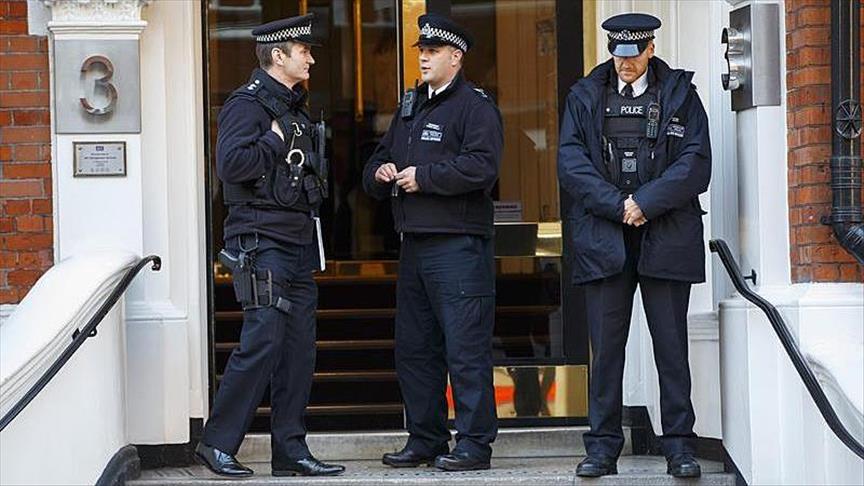UK terror threat highest since 9/11, says spy chief
MI5 director says more powers needed to combat threat as parliament prepares to debate new laws
 “We need to be able to monitor the communications of terrorists, spies and others,” Parker said in the first live interview by an MI5 chief in the agency’s 106-year history.
“We need to be able to monitor the communications of terrorists, spies and others,” Parker said in the first live interview by an MI5 chief in the agency’s 106-year history.
United Kingdom
LONDON
New laws are needed to combat the terror threat against Britain after six plots were prevented over the previous year, the country’s security chief said Thursday.
Andrew Parker, chief of domestic security service MI5, said the plots were “highest number I can recall in my 32 year career, certainly the highest number since 9/11”.
In an interview with BBC radio, Parker said the nature of the terror threat was changing dramatically due to technology.
“We need to be able to monitor the communications of terrorists, spies and others,” Parker said in the first live interview by an MI5 chief in the agency’s 106-year history.
“We need to obtain data about their communications and we need to obtain other information about them.”
Addressing the concerns of privacy and human rights groups, he said MI5 was not interested in people’s private lives and repeatedly pointed out it would be for parliament to decide on the specific powers granted to the security service.
The House of Commons - the U.K. parliament’s lower house - is expected to debate new laws governing the country’s security and intelligence agencies. It is widely expected to grant greater surveillance powers that could require internet and telephone companies keep a record of customers’ online activity and social media use, leading critics to call the proposals a “snoopers’ charter”.
A previous draft of the law was blocked by the junior partner in Britain’s last coalition government but the Conservative Party has indicated it will reintroduce the bill after winning a majority in May’s general election.
Parker said the rising threat “largely” resulted from the Syrian civil war but that Syrian refugees fleeing the conflict were not a major concern. Around 700 Britons have travelled to Syria to fight, according to British police.
Last year, Britain raised its terrorism threat level to “severe” - the second highest level, indicating a terror attack was considered highly likely - and last week, police revealed a record number of arrests for suspected terror offenses.
The interview came a day after Defense Secretary Michael Fallon revealed around 330 Daesh fighters had been killed in U.K. air strikes in Iraq over the past year.
In response to a parliamentary question published Wednesday, Fallon said: “This figure is highly approximate, not least given the absence of U.K. ground troops in a position to observe the effects of strike activity.”
He added that he did not believe the attacks had led to any civilian deaths.
Anadolu Agency website contains only a portion of the news stories offered to subscribers in the AA News Broadcasting System (HAS), and in summarized form. Please contact us for subscription options.







